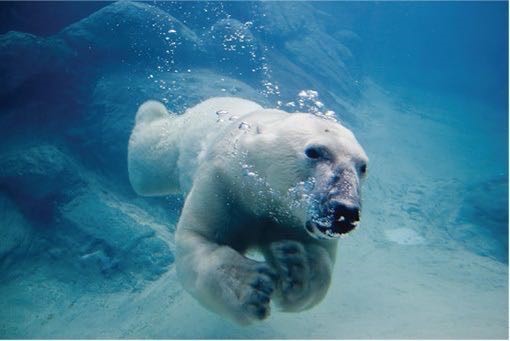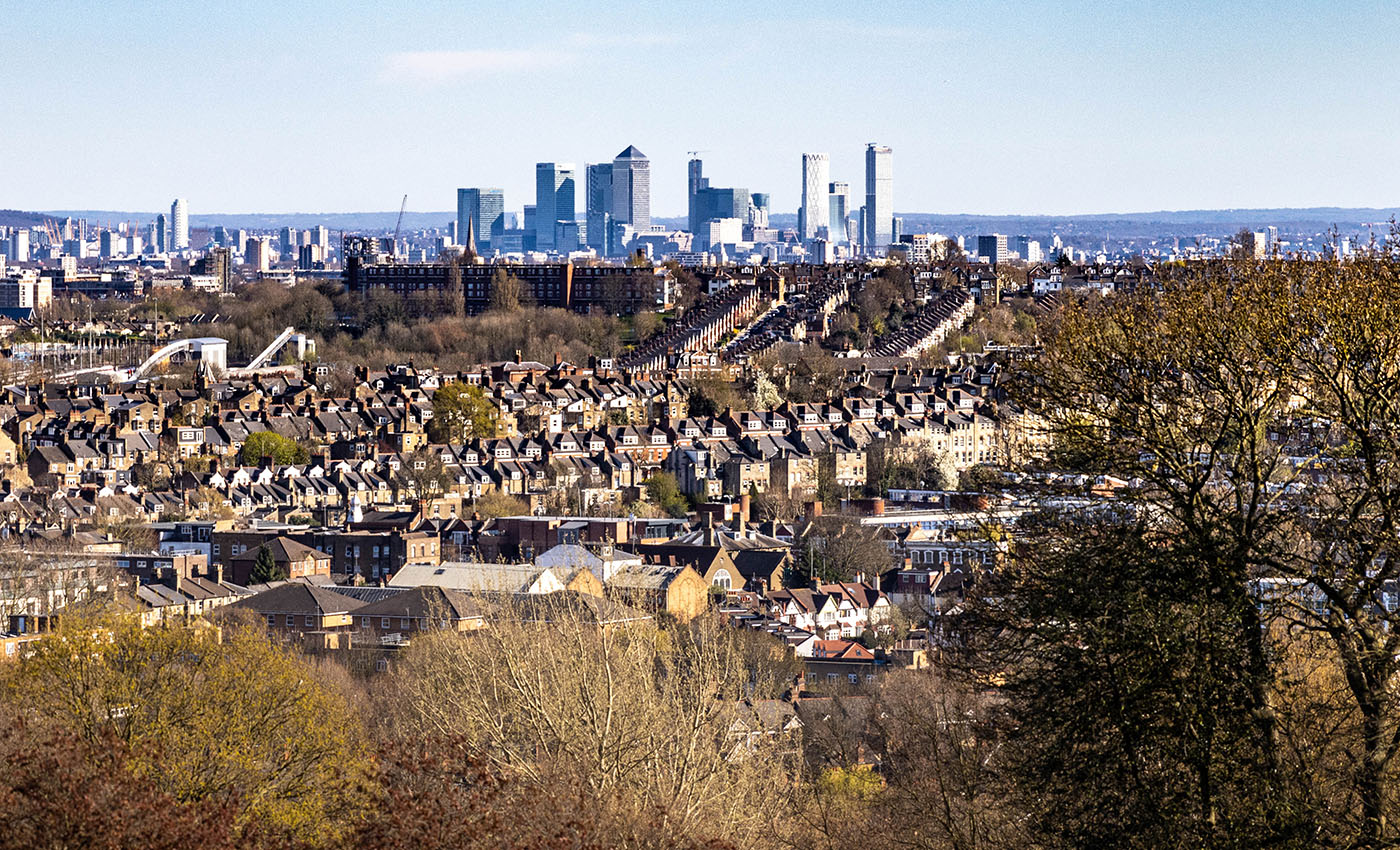4.1 Natural systems
Polar bears (Figure 13) are neither well measured nor well understood. Of the 19 subpopulations, there are enough data for only two to link a decline in numbers with climate change, and some subpopulations remain stable. How will they cope with the impacts of global warming?

In the following activity you will find out more about the impacts of the climate crisis on natural systems.
Activity 4 Climate impacts on life
Here is a selection of statement extracts from the IPCC (2014) about impacts of climate change on natural systems, i.e. life other than humans, over the past several decades:
- Decline in coral reefs in tropical African and Asian waters.
- Many terrestrial species have recently moved, on average, 17 km towards the poles and 11 m up in altitude per decade (e.g. Europe, North America, Chile, Malaysia).
- The distributions of marine species have shifted by up to a thousand kilometres. Overall, the edge of species ranges expanded towards the poles at around 72 km per decade.
- Over the last 50 years, biological events in the spring and summer shifted earlier for many species by around 4.4 days per decade.
- Increasing burnt forest areas during recent decades in Portugal and Greece.
- Increased wildfire frequency in North American subarctic conifer forests and tundra.
- Increase in wildfire frequency and duration, and burnt areas in forests of the western US and boreal forests in Canada.
- Decreased reproductive success in Arctic seabirds.
- Decline in Southern Ocean seals and seabirds.
- Reduced krill density in Scotia Sea.
Write your own haiku about one or more of these statement extracts in the response box below. It is easier than you might think, and can be quite addictive!
Discussion
Haiku 1
(based on extracts 3 and 4):
Ocean life moving
Nature’s calendar shifting
When will the change end?
Haiku 2
(based on extracts 1, 3, 5, 6, 7 and 10):
From fish to forest
Coral, conifer and krill
None are left untouched.
